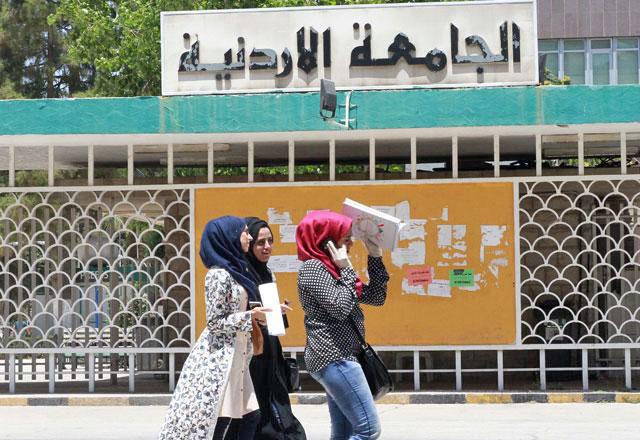You are here
Many female students pursuing crowded specialisations — SIGI
By JT - Jul 31,2019 - Last updated at Jul 31,2019

A recent SIGI study found employment for women who possess a bachelor’s degree or higher still lags ‘considerably’ compared with their male counterparts (JT file photo)
AMMAN — Around 42 per cent of female university students admitted in 2017, enrolled in three saturated disciplines, the Sisterhood is Global Institute (SIGI) Jordan reported on Tuesday.
According to official figures, a total of 66,308 students were admitted to universities in the 2016-2017 academic year, among which were 34,669 women, constituting around 52.3 per cent, SIGI added.
The report indicated that 42.1 per cent of female students at Jordanian universities, or some 14,601 women, are studying three saturated specialisations: 16.4 per cent are studying trade and business, 15 per cent human sciences, religion and arts and 10.7 per cent are studying educational sciences.
In the 2016-2017 academic year, 55.3 per cent of the Kingdom's graduates were women, and some 34,000 chose 8 majors, most of which were crowded.
The report added that according to the Department of Statistics, three out of five working women hold a bachelor’s degree or higher.
SIGI also said that women's unemployment rates during the first quarter of 2019 were considerably higher than men's. The unemployment rate of women with a bachelor’s degree or higher stood at 78 per cent, while the unemployment rate for men in the same category stood at 25.2 per cent.
Women with an intermediate diploma and higher, who studied to enter the sectors of industry and mining, textile and leather, domestic services and social services had unemployment rates of 57.3 per cent, 51.5 per cent, 50.2 per cent and 46.5 per cent respectively, according to the report.
Specialties with the lowest female unemployment rates were veterinary medicine with 13.5 per cent, dental studies with 14.4 per cent, nursing, care and midwifery with 14.7 per cent, pharmacology at 17.2 per cent, industrial engineering with 21.5 per cent, law 22.9 per cent and mathematics at 23.6 per cent.
To manage the imbalance, the SIGI report recommended more marketing for needed specialisations. However, it advised against the freezing of any saturated programmes as everyone has different capabilities that match specific fields. SIGI instead recommended that the labour market be improved in order to absorb different specialties.
Related Articles
AMMAN — Three out of every five working females have bachelor’s degrees or higher, a Sisterhood Is Global Institute (SIGI) statement said We
Unemployment in Jordan stood at 12.9 per cent in the first quarter of 2015, reaching 11 per cent among men and 22.1 per cent among women.
AMMAN — The unemployment rate in the third quarter of 2020 stood at 23.9 per cent, up by 4.8 per cent compared with the same period of 2019,
















